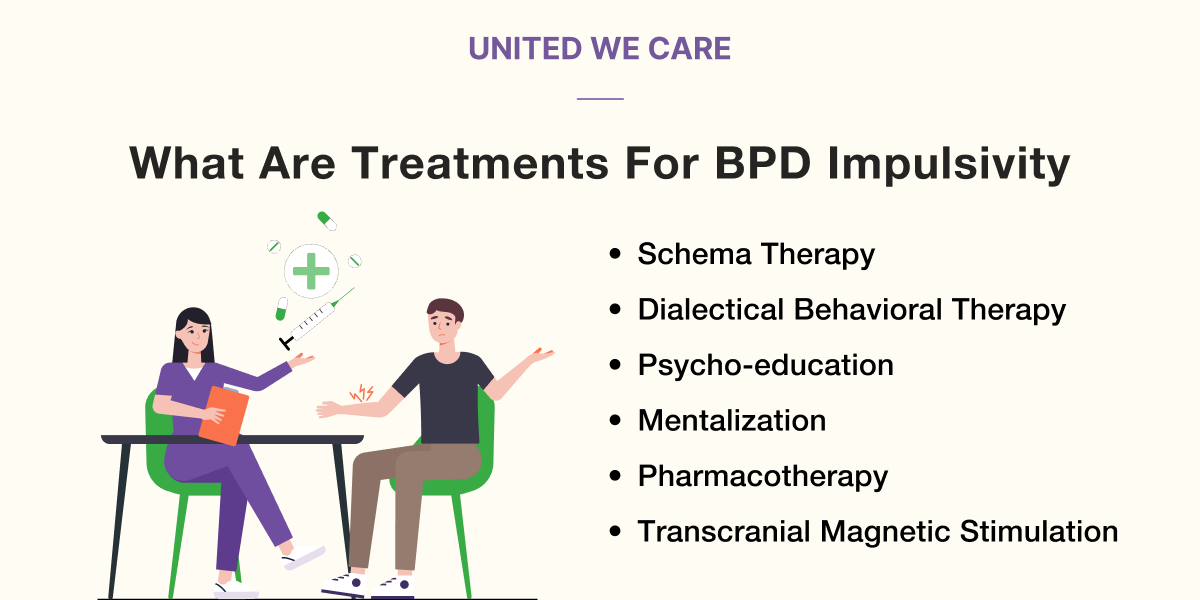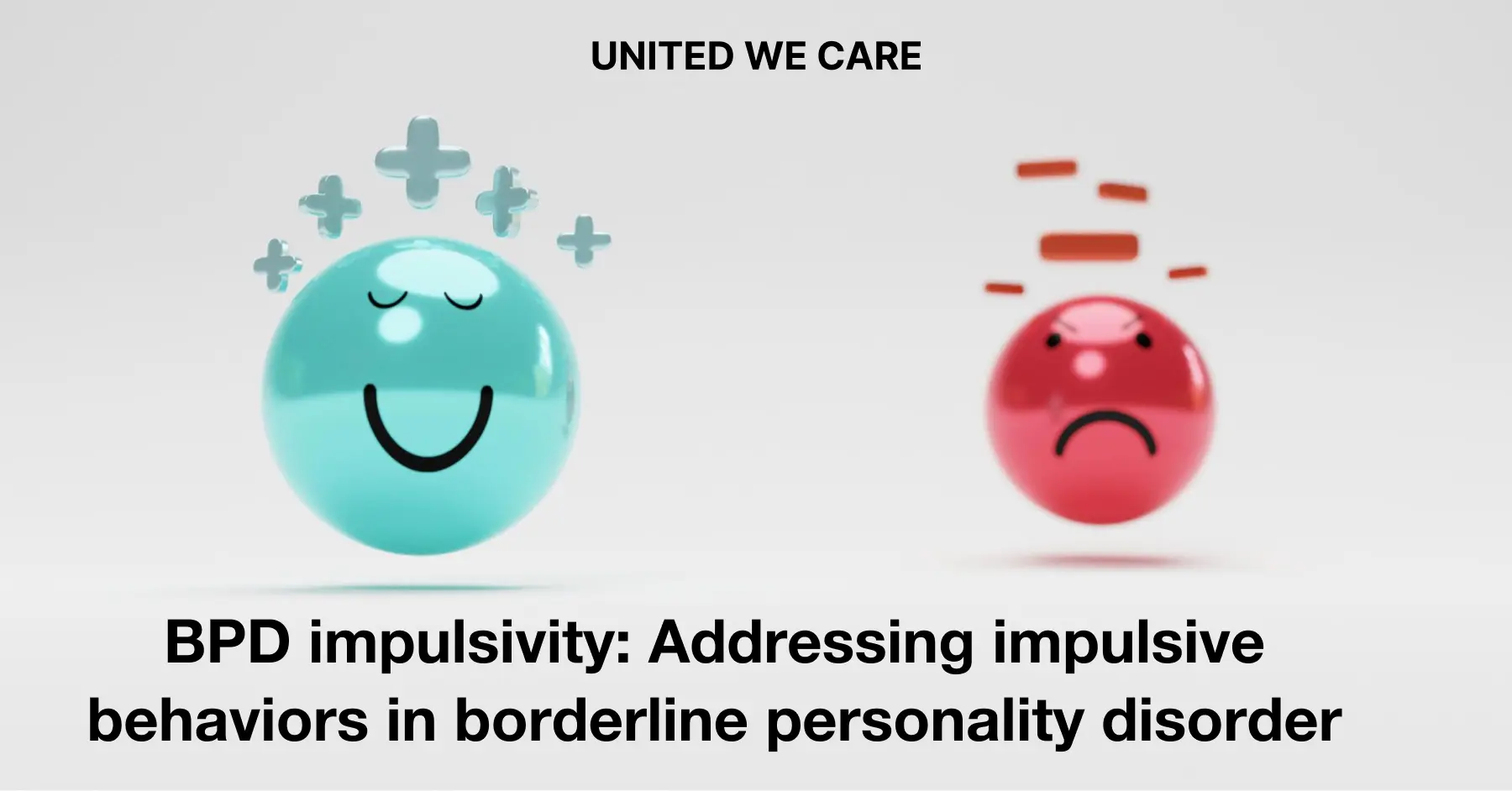Introduction
Impulsivity is one of the main symptoms experienced by individuals diagnosed with borderline personality disorder, also known as BPD. As the term suggests, this is the behavioral tendency to act on impulses without thinking much.
Often, this leads to unfavorable consequences that, sometimes, have long-lasting repercussions. Therefore, impulsivity, being a central feature of BPD, makes it difficult for people with this disorder to lead functional lives.
What is BPD Impulsivity?
Clinically, BPD-related impulsivity is seen as different from the common understanding of this word. In the sense that it not only leads to pathology but also perpetuates it. Researchers have found that this kind of impulsivity is stable over time and highly predictive of borderline psychopathology [1].
Furthermore, studies have found that the treatment of impulsivity may impact the course of BPD. In this article, we will attempt to understand BPD impulsivity in both general and specific ways.
We will also include examples of risky behaviors that are included in BPD impulsivity. That way, you can identify your own patterns and figure out what you need to do to reduce your BPD impulsivity.
Symptoms of BPD Impulsivity
When clinicians and researchers look at the impulsivity caused by BPD, they categorize it into the following four categories. This helps to understand the depth and prevalence of the impulsivity better.
Choice Impulsivity
Firstly, BPD impulsivity manifests as choice impulsivity. It is the preferential selection of immediate yet smaller rewards than long-term, larger rewards. It’s kind of like choosing the quick and easy temporary good feeling rather than the time-consuming effort-taking permanent joy.
Motor Impulsivity
Different from choice impulsivity, motor impulsivity is concerned with actions. The inability to control how you physically react in a situation or the action you choose to take. This kind of impulsivity is prevalent, albeit less than the choice kind, in borderline personality disorder.
Sensation-Seeking
Individuals with BPD have a distorted sense of self and extreme mood swings. Often, they do not have healthy coping mechanisms to deal with these feelings. So, they need constant distractions. This usually plays out as sensation-seeking behavior. With sufficient distractions bombarding them, they don’t need to sit with their feelings of chronic emptiness.
Self-Harm & Self-Sabotage
Finally, BPD impulsivity can also manifest as behaviors and tendencies that cause harm to the self. This can be indirect harm, such as making decisions that have negative consequences. They can also lead to direct harm, like causing physical pain or injury to the self. In extreme cases, it can also be suicidal tendencies.
What are the possible Risky Behavior patterns observed in BPD Impulsivity?
Now, let’s shift our focus to more specific manifestations of BPD impulsivity. These are some of the various behaviors that come under this umbrella term.
Reckless Spending
One of the easiest risky behaviors to spot in BPD impulsivity is the tendency to spend recklessly. We’re not just talking about excessive and unnecessary shopping. This also includes buying things when you don’t have the means to purchase them. BPD impulsivity has led countless people into great debt because of extreme levels of reckless spending.
Volatile Interpersonal Relationships
Individuals with borderline personality disorder are also known to have volatile interpersonal relationships. Impulsivity in this context may show up as frequent conflicts, major life decisions made without much thought, and even unsafe sex.
Addictions
A great many people suffering from BPD experience the associated impulsivity through addictions. This can be an addiction of any kind. More commonly recognized addictions include substance abuse, gambling, and sex addiction. However, this can also include gaming, shopping, and work addictions.
Living Dangerously
Additionally, people with BPD impulsivity tend to live life dangerously. They may make sudden life choices like getting married, getting divorced, or quitting a job on a whim. They also tend to have very little regard for personal safety and are comfortable with the chances of fatal injuries.
Behavior Examples of BPD Impulsivity
Before we move on to talking about treatment options for BPD Impulsivity, let’s list down some examples of this phenomenon. The following is a list of examples of BPD impulsivity.
- Buying expensive gadgets, clothes, or material desires without the need for it or the resources for it
- Suddenly or drastically making changes to career, lifestyle, or activities of interest
- Picking up new projects without completing the ones previously committed to
- Indulging in romantic or sexual relations with strangers or people relatively unfamiliar
- Making major life choices like getting married, getting divorced, or quitting a job without giving it much thought
- Embarking on a dangerous adventure that could be life-threatening
- Suddenly changing plans midway even though a lot has been invested in the original plan
- Destroying personal property or discarding material possessions that held great meaning and value as if they meant nothing
- Mistreating someone or disrespecting someone greatly due to explosive anger
- Attempting suicide or causing non-suicidal self-injury
- Gambling, stealing, or unnecessarily getting into trouble with the law
Treatment of BPD Impulsivity
Fortunately, there are several different modes of treatment that have been found to be successful in reducing BPD impulsivity. In this section, we’ll describe a few of them.

Schema Therapy
Schema therapy isn’t just one approach but the amalgamation of several approaches, including CBT, Gestalt Therapy, and object relations. The goal is to ameliorate emotional and bodily reactions by changing how a person thinks about concepts and schemas. Since impulsivity is based on acting on intense emotions, this therapy works well.
Dialectical Behavioral Therapy
Perhaps the most popular treatment module for BPD is Dialectical Behavioral Therapy, better known as DBT. BPD impulsivity can be reduced using the core skills of mindfulness, distress tolerance, emotion regulation, and interpersonal effectiveness.
Psycho-education
This approach is especially used when using a trauma-informed approach to treating BPD impulsivity. The individual is taught to recognize all the external and internal antecedents to their impulsivity. Typically, this also includes physiological factors contributing to it. As a result, the client is more empowered with awareness and self-control.
Mentalization
Similarly, mentalization-based therapy, or MBT, helps a person recognize and comprehend how their mental state intersects with those of others. This knowledge gives the person a better grasp of what is happening to them in moments of impulsivity.
Pharmacotherapy
Of course, medication is always an available option for people suffering from BPD impulsivity. Especially if they’ve been working in therapy for a while and need more support. Studies have found that neuroleptics and mood stabilizers appear to be more effective than antidepressants for this objective [3].
Transcranial Magnetic Stimulation
A relatively more modern mode of treatment, transcranial magnetic stimulation (TMS), is also a promising approach to treating BPD impulsivity. TMS can be done with wearable devices that use magnetic fields to stimulate nerve cells in the brain. Consequently, this leads to better mood control and, hence, can be used for this purpose.
Conclusion
BPD impulsivity is more serious than just typical patterns of risky behaviors. It is a more persistent tendency that impacts a person’s functionality and perpetuates mental illness. It can also lead to self-sabotage and self-harm in extreme cases.
A few examples of BPD impulsivity are reckless spending, unsafe sex and volatile relationships, addictions, and dangerous life choices. Thankfully, there are several evidence-based treatment approaches for BPD impulsivity. Speak to our experts at United we Care to learn more! The professional guidance and support that you can get from them will help you overcome your BPD-related impulsivity!
References
[1] Links, P.S., Heslegrave, R. and Reekum, R.V., 1999. Impulsivity: core aspect of borderline personality disorder. Journal of personality disorders, 13(1), pp.1-9.
[2] Barker, V., Romaniuk, L., Cardinal, R.N., Pope, M., Nicol, K. and Hall, J., 2015. Impulsivity in borderline personality disorder. Psychological medicine, 45(9), pp.1955-1964.
[3] Mungo, A., Hein, M., Hubain, P., Loas, G. and Fontaine, P., 2020. Impulsivity and its therapeutic management in borderline personality disorder: a systematic review. Psychiatric Quarterly, 91, pp.1333-1362.
[4] Sebastian, A., Jacob, G., Lieb, K. and Tüscher, O., 2013. Impulsivity in borderline personality disorder: a matter of disturbed impulse control or a facet of emotional dysregulation?. Current psychiatry reports, 15, pp.1-8.










